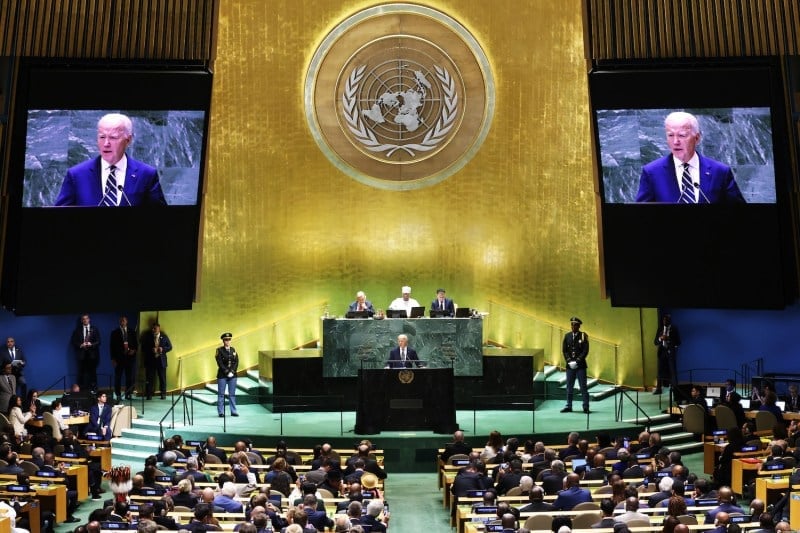In a significant and urgent effort to address the rising threat of antimicrobial resistance (AMR), global leaders gathered at the United Nations General Assembly in New York and adopted a comprehensive political declaration aimed at tackling this pressing public health challenge. Dr. Tedros Adhanom Ghebreyesus, the Director-General of the World Health Organization (WHO), stressed the gravity of AMR, noting that it is linked to over a million deaths annually, a number that is expected to worsen significantly in the coming decades if no decisive action is taken. The consensus among experts is that AMR primarily arises from the misuse and excessive use of antimicrobial medications, which complicates even routine medical procedures and places a disproportionate burden on low and middle-income countries (LMICs). In these regions, where healthcare systems are already fragile, the risk of surgical infections is alarmingly high, with approximately 11% of surgical patients facing postoperative infections because of AMR.
The political declaration from the assembly outlines a set of commitments aimed at combating the growing crisis of AMR. Notably, it sets a target to achieve a 10% reduction in global deaths associated with drug-resistant infections by 2030. Furthermore, it aims to ensure that at least 70% of antibiotics used for human health are classified under the WHO’s Access group, which includes medications that pose the least risk of contributing to AMR. Dr. Ghebreyesus highlighted the slow progress in the development of new antibiotics, citing that since mid-2017, only 13 antibiotics have been approved, with a mere two of these representing entirely new chemical classes and deemed innovative. The lack of new treatments poses a serious challenge as resistance to existing medications continues to escalate.
The implications of AMR extend beyond immediate health concerns, having significant economic ramifications as well. According to estimates from the Quadripartite and the Organisation for Economic Co-operation and Development, AMR could lead to an increase in global healthcare expenditures, potentially reaching up to $412 billion annually over the next decade. Despite these staggering figures, studies indicate that implementing effective AMR interventions can yield significant financial returns, offering as much as $7 to $13 for every dollar invested. This potential return on investment serves as a compelling argument for global leaders and policymakers to prioritize AMR strategies in their healthcare agendas.
Personal testimonies shared during the assembly highlighted the human aspect of the AMR crisis. Survivors such as Ella, who has cystic fibrosis and battled a severe drug-resistant infection, and John, who encountered a life-threatening infection following what was supposed to be a routine surgery, illustrated the profound impact of AMR on individuals’ lives. Their stories underscore the necessity of prioritizing patient-centered approaches within the broader AMR response. Dr. Ghebreyesus emphasized that effective action against AMR hinges on political commitment, sustainable financing, rigorous tracking of progress, and most importantly, placing the experiences and needs of affected individuals like Ella and John at the forefront of response efforts.
The assembly’s declaration is a call to action for all stakeholders involved in health policy and management, emphasizing the need for collaborative efforts across nations to tackle AMR. Dr. Ghebreyesus reiterated that overcoming AMR is not solely a medical challenge, but a complex issue that requires coordinated responses from governments, healthcare providers, and civil society. Sustainable action plans engaging various sectors, including agriculture, animal health, and human medicine, are essential in addressing the multifaceted origins of AMR. By fostering cooperation and investing in research, health systems strengthening, and education, the global community can work toward significantly reducing the incidence of drug-resistant infections and their associated health and economic costs.
In conclusion, the recent political declaration adopted at the UN General Assembly marks a pivotal moment in the global fight against antimicrobial resistance. The commitment from world leaders is crucial for enhancing awareness and mobilizing resources to combat this growing threat. With the alarming statistics related to AMR fatalities and its disproportionate effects on vulnerable populations, there is an urgent need for action that is both compassionate and strategic. By centering the human experiences of those affected and leveraging shared political will, the international community can usher in a new era of collective action against AMR, ultimately aiming for safer surgical procedures, effective treatment options, and a healthier future for all. The battle against AMR is unprecedented, yet through solidarity and determination, the global community has the potential to turn the tide against this formidable foe.


